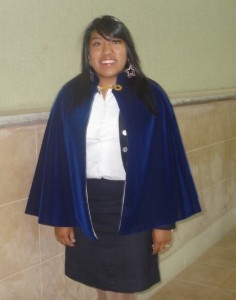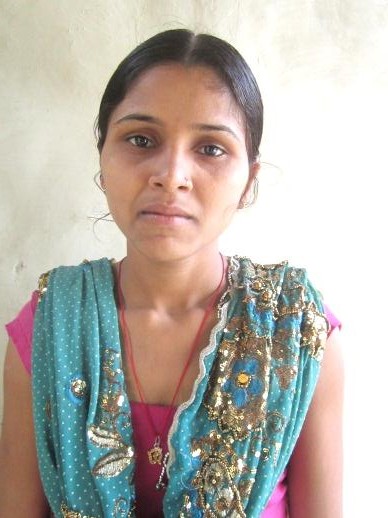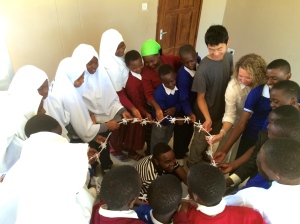By Drika Weller, Chief Executive Officer of The School Fund
When our founder Matt Severson met John Medo in 2010, John had already proven his academic ability. He’d passed his secondary school qualifying exams and was eager to learn more. But he lacked the $150 to pay his school fees and faced dropping out as a result. If not for Matt’s ability to raise those funds, John’s educational journey might have stopped then and there.
Today, millions of children are in precisely the position John was once in. They have worked and excelled throughout primary school, only to fall short financially when they were ready to move up through the next step in their educations. In fact, today increasing numbers of children are failing to take the step from primary to secondary school.
Expanded Primary School Attendance
We are currently experiencing a global, seismic shift in access to education. The United Nation’s laudable second Millennium Development Goal—that by 2015, boys and girls everywhere will be able to complete a full course of primary schooling—is gaining traction.
In developing countries, by 2010, primary school enrollment reached 90 percent—that’s up from 82 percent in 1999. One major contributing factor to that jump in enrollment is the abolition of primary school fees in many countries.
By eliminating primary school fees, Kenya, for example, quickly enrolled an additional 2 million students in primary school. Ethiopia’s primary school enrollment increased 88 percent between 2000-2007. By abolishing school fees in 2001, Tanzania almost doubled its primary enrollment rates from 1999.
This shift has led to an exploding demand for secondary school, yet it has not translated into secondary school attendance. Why?
Secondary School Bottleneck
In many cases, there simply isn’t room for the swelling ranks of primary-educated students. According to one 2011 United Nations report, two out of three African children are effectively shut out of secondary school. (In sub-Saharan Africa there are only enough spaces for 36 percent of secondary school aged students.)
Other barriers abound: few low-income countries provide free secondary education; distance to school often increases at the secondary level; and drop-out rates grow where young people face school violence, drug abuse and HIV/AIDS. What’s more, secondary education often costs more per student—tuition fees go up and there are uniforms to pay for. Families measure these costs against what their sons and daughters could be earning if put to work.
Staying in school is especially hard for girls.
Girls and boys attend school in equal numbers in only 2 out of 130 countries. Girls make it to primary school, but then drop out. The root of the problem is often poverty. Girls and women in many parts of the world spend hours every day fetching water. At school they face lack of access to decent sanitation facilities. Pregnancy, child marriage, gender roles, and violence also hinder girls’ ability to pursue secondary education.
But the new educational reality is this: despite rapid gains in primary school attendance, bright young minds are stuck at an educational bottleneck—and for some, that barrier is still a sum of around $150.
Filling the Gap
Despite tremendous gains in education across many developing nations, it is projected that only 56 percent of countries will achieve universal primary education by 2015. Even if, as expected, universal lower secondary education becomes an explicit goal after 2015, we are clearly (and sadly) many years from making that goal a reality.
The School Fund exists to fill a financial gap for high-achieving students. Many of them dream of being doctors, lawyers, engineers, or even teachers. They are the very students who could fail to make that leap from primary to secondary school; they may be forced out of secondary school after a year or two of study. They are the young people represented by the statistics that show how universal primary education is beginning to work—and how access to secondary education is so painfully limited.
It is for these students that we work. I know first-hand the impact that an education has had on my own and my family’s life, and I feel a strong desire to help give this opportunity to others. One funded student at a time—and through each journal entry—they show us who their education is allowing them to become. They show us why access to secondary education is essential.





 With the help of Kidizens that came in a big suitcase, Matt’s class learned a lot about how to build well organized and well planned cities. I believe that when students learned these skills, they will be able to build their own cities when they grow up. I learned that the hands-on, learning by doing, approach is an excellent way to learn. There were no bored and idle students in this class. They were all too excited and busy planning their cities.
With the help of Kidizens that came in a big suitcase, Matt’s class learned a lot about how to build well organized and well planned cities. I believe that when students learned these skills, they will be able to build their own cities when they grow up. I learned that the hands-on, learning by doing, approach is an excellent way to learn. There were no bored and idle students in this class. They were all too excited and busy planning their cities.
 is located in the Southern Highlands where The School Fund sponsors more than 40 students. There, I taught science classes and played sports with the School Fund students.
is located in the Southern Highlands where The School Fund sponsors more than 40 students. There, I taught science classes and played sports with the School Fund students.
